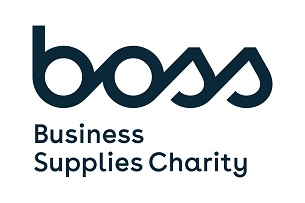According to the Office of National Statistics (ONS), more than a fifth of adults in the UK is reported to be borrowing more money or using credit because of the recent increase in the cost of living. But how do you cope if you are already in unmanageable debt? And how do you bounce back from redundancy and relationship breakdown?
Well, this is exactly what happened to BOSS Charity beneficiary Tom, for whom the pressure became too much to handle (we’ve changed his name to protect his privacy).
Tom worked as a designer for seven years for one of the business products industry’s largest companies. With a young family to take care of, Tom and his wife found themselves with over £20,000 of debt and no hope of being able to pay it off. As the pressure became almost unbearable, Tom’s mental health deteriorated and he felt that things just couldn’t get any worse: “I found myself in a terrible situation. We had huge debts, I was made redundant and then, very sadly, our marriage ended. I’d lost my home, my job, my wife, my children, my mental health and really importantly my confidence and self-belief. I didn’t know where to turn. I had to move back home with my parents and was in utter despair.”
Tom made an appointment with his GP, who diagnosed depression and arranged for treatment, which included a referral to his local counselling service. Tom’s local mental health service also signposted him to debt support agency, Christians Against Poverty (CAP) and he joined their debt management course: “They helped me manage our debtors and learn how to budget to pay off small amounts of our debts whilst going through the process of getting a Debt Relief Order.”
Fortunately, colleagues at his company also suggested that he contact the BOSS Charity to see if we could help. Says Tom, “I feel so incredibly lucky that I applied to the BOSS Charity and was awarded a quarterly grant. It really has been a lifesaver. Despite losing all my self-esteem, I managed to get a job in a warehouse which was on basic pay, but recently I found another job with better prospects and I’ve moved into a place of my own.”
Of course, living alone is more expensive than living as a couple: one person households spend more on food and utilities, and are likely to spend more on socialising and entertainment, which is a real necessity for good mental health. In fact, the ONS says that those living alone are more likely to rent their home, with only 50% of solo 25-64 year olds living in their own home, compared to 75% who live as couples.
Tom continues: “I’ve been back to CAP to help me learn to budget as a single person. My BOSS Charity grant has paid for everything from furniture and car maintenance to clothes and my energy bills. We now have an arrangement that we have a 60/40 split, so I’m seeing my children more often and doing the school run every morning, too. My BOSS Charity grant means I’m able to take the children out for the afternoon and buy them the occasional toy.
“I can’t find the words to say how grateful I am for the BOSS Charity’s support. I just don’t know how I would have coped without it. It’s changed my life. It’s really helped me recover slowly from depression knowing that I have this financial support.”
The BOSS Charity’s trustees and visitors have received training with CAP to enable them to signpost beneficiaries to learn how to better manage their money. To find out more, visit CAP’s website.
If you know anyone in the industry who is struggling with their finances, ask them to get in touch with us to see if they’re eligible for our help.
